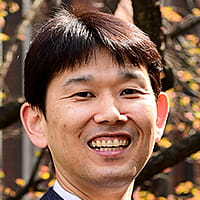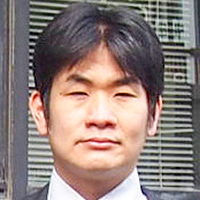Research summary
Research outline
Tumor microenvironment is highly heterogeneous and dynamic. Hypoxic, acidic, and nutrients-depleted microenvironments exist in solid tumors and induce malignant phenotype and chemo/radioresistance of cancer cells (Figure 1). We aim to elucidate molecular mechanisms responsible for cellular adaptive responses to the tumor-specific microenvironment and malignant progression of cancer cells in order to understand the nature of cancers and lead to the development of novel strategies for cancer therapy (Figure 2).

Fig. 1.Hypoxic cancer cells (green) lying distant from blood vessels (blue) are relatively resistant to DNA damage (red) after radiotherapy.
Fig. 2.We aim to elucidate the nature of cancer and establish novel treatment strategies by elucidating gene networks responsible for adaptive response of cancer cells to hypoxic microenvironment.
Main themes
- Cellular adaptive responses to tumor microenvironment, e.g. hypoxia
- Molecular mechanisms underlying malignant progression and chemo/radioresistance of cancer cells
- Molecular mechanisms underlying the onset of hypoxia-associated diseases
Member
|
HARADA, HiroshiProfessor |
harada.hiroshi.5e*kyoto-u.ac.jp See faculty information |
|---|---|
|
NAM, Jin-MinAssociate Professor |
nam.jinmin.4i*kyoto-u.ac.jp See faculty information |
|
KOBAYASHI, MinoruProgram-Specific Assistant Professor |
kobayashi.minoru.4m*kyoto-u.ac.jp See faculty information |
- Please note that the @ symbol has been replaced by *.
Movie of research introduction
Access
Faculty of Medicine Campus, Graduate School of Biostudies Radiation Biology Center



